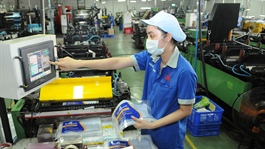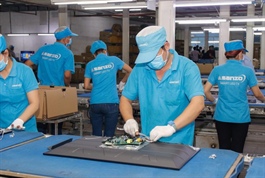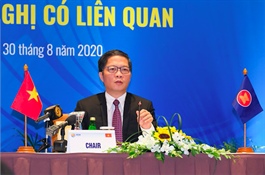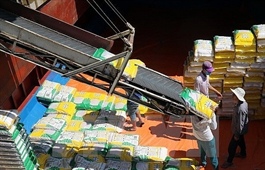Steelmakers urge import protection
Steelmakers urge import protection
Amidst the US-China trade tensions, local steelmakers are worried that imported cold-rolled steel products from China could eventually ruin their business and have petitioned the Ministry of Industry and Trade for additional anti-dumping measures to control the influx of Chinese steel.
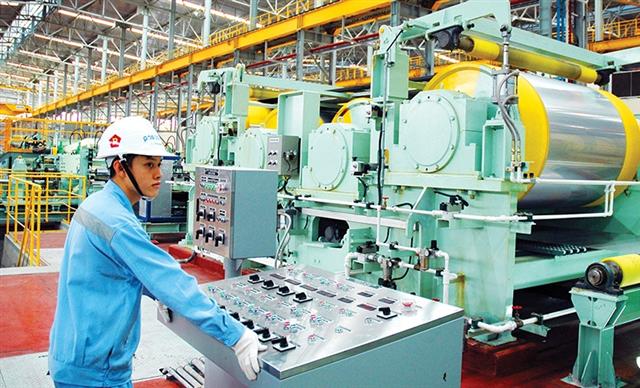
Many markets use anti-dumping measures for steel products, photo: Le Toan
|
The Ministry of Industry and Trade (MoIT) last week extended the time of an ongoing investigation to decide whether to apply anti-dumping measures for cold-rolled steel products from China, nearly a year after the investigation started. The investigation was initially requested by local producers such as Posco Vietnam Co., Ltd., China Steel Sumikin Vietnam JSC, and Phu My Flat Steel Ltd.
The MoIT said that the deadline for the investigation of this case would be March 2021 as it needs more time to review and clarify problems caused by the COVID-19 pandemic.
Meanwhile, local steelmakers complained in a petition sent to the MoIT last year that these imported products originating from China have been causing damage to their business and cited that these Chinese steel products have been being sold at prices 4-14 per cent lower than local ones, and 9-19 per cent lower than imports from Japan, Taiwan, and South Korea.
Cold-rolled steel sheets offer a variety of outstanding properties, including easy formability and a smooth, clean surface, and are used in automobiles, appliances, furniture, and many other everyday items.
Anti-dumping measures, such as the requested ones, are nothing new in Vietnam’s steel sector as the country last year decided to extend the validity of anti-dumping duties on cold-rolled stainless steel products originating from China, Indonesia, and Taiwan for an additional five years, starting from last October, following another request by Posco and Inox Hoa Binh JSC, which account for 80 per cent of domestic stainless steel production.
According to the Vietnam Steel Association, it is hard to export cold-rolled stainless steel, as there are many large manufacturers in Southeast Asia and the regional supply exceeds the demand. It is also difficult to export steel to the US and EU markets, which themselves apply anti-dumping policies to steel products.
At first, the MoIT said that if there are no anti-dumping measures and the imports into Vietnam further increase, the domestic industry could hardly survive and develop. Previously, the local stainless steel market only had Posco and a few other small domestic enterprises. The ongoing recovery of the stainless steel industry has attracted many enterprises’ investment in the industry, with healthy competition.
During the investigation and the eventual application of measures, the MoIT already considered an exemption from anti-dumping measures for cold-rolled stainless steel products as input materials that have not been produced domestically ensure the interests of consumers. However, the MoIT also laid down concerns that further anti-dumping measures could create an exclusive position for Posco.
To control the influx of cheaper imports and offer assistance for local steelmakers, a number of markets have slapped anti-dumping obligations on steel from China, such as India, Brazil, Thailand, the European Union, and the United States.







